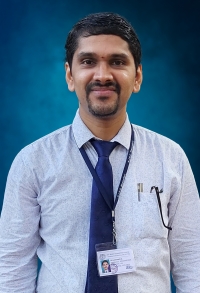About Computer Science & Engineering (Data Science)
The B.E. in Computer Science & Engineering (Data Science) at SJEC is a four-year VTU-affiliated programme established in 2022–23 with an intake of 60 students. The programme serves as an emerging center of excellence focused on preparing skilled data-driven professionals through a strong academic foundation and an industry-aligned curriculum. It emphasizes core computing, data analytics, machine learning, big data technologies, and statistical modeling.
Students acquire hands-on experience in programming, software development, data analysis, databases, algorithms, and problem-solving. Their analytical capabilities are strengthened through mathematics, statistics, and optimization, while training in AI tools, cloud technologies, and modern data platforms ensures practical industry-ready skills. The department regularly conducts skill development programs, industry workshops, technical training, and sessions involving real-world datasets. Participation in coding challenges, hackathons, ideation events, and interdisciplinary projects further nurtures innovation and critical thinking.
CSE(DS) students actively take part in high-impact events such as the FOSS United National Convention, Google Cloud DevFest, and hackathons by Microsoft, Kyndryl, NIVIUS, EG, and SAP. Several student projects have received funding from KSCST, and students also excel in sports, NCC, NSS, and co-curricular activities at state and national levels. Faculty members are engaged in research across machine learning, data mining, cloud computing, and intelligent systems, securing grants and publishing extensively in reputed journals and conferences.
With the rapid expansion of data-driven industries, Data Science plays a crucial role in the digital age. Graduates are well prepared for in-demand roles such as Business Intelligence Developer, Research Scientist, Big Data Engineer, Data Analyst, Data Scientist, NLP Engineer, AI Engineer, Cyber Analyst, Software Engineer, and Product Manager.
Facilities:
To impart value-based quality education with the motive of transforming mankind with excellence and competing areas of engineering, technology and management.
- Focus on the practical aspects of the curriculum to make learning a meaningful and interesting experience.
- Encourage active collaboration with industries, communities, and fellow institutions within the country and abroad.
- Infuse strong moral and ethical principles in students in order to make them conscientious citizens and excellent human beings.
- Cultivate the competitive spirit required for success.
- PEO 1: To provide students with a solid foundation and the ability to use engineering concepts, mathematics, physics, and humanities required to develop, analyse, design, and implement solutions to the problems in intelligent computing and business systems.
- PEO 2: To develop in students, the knowledge of computer science and engineering to work in domains such as artificial intelligence, machine learning and data science.
- PEO 3: To foster in students, the capacity of teamwork through efficient communication in multidisciplinary projects.
- PEO 4: To prepare students for building successful careers in artificial intelligence, data science and business systems to meet the needs of society while incorporating professional ethics.
- PEO 5: To inspire learners to pursue higher education in their desired fields and engage in research.
Engineering Graduates will be able to:
- PO1: Engineering Knowledge: Apply knowledge of mathematics, natural science, computing, engineering fundamentals and an engineering specialization to develop to the solution of complex engineering problems.
- PO2: Problem Analysis: Identify, formulate, review research literature and analyze complex engineering problems reaching substantiated conclusions using principles of mathematics, natural sciences and engineering sciences with consideration for sustainable development.
- PO3: Design/Development of Solutions: Design creative solutions for complex engineering problems and design/develop systems/components/processes to meet identified needs with consideration for the public health and safety, whole-life cost, net zero carbon, culture, society and environment as required.
- Ability to understand, analyze and communicate global, economic, legal, and ethical aspects of business
- PO4: Conduct Investigations of Complex Problems: Conduct investigations of complex engineering problems using research-based knowledge including design of experiments, modelling, analysis & interpretation of data to provide valid conclusions.
- PO5: Engineering Tool Usage: Create, select and apply appropriate techniques, resources and modern engineering & IT tools, including prediction and modelling recognizing their limitations to solve complex engineering problems.
- PO6: The Engineer and The World: Analyze and evaluate societal and environmental aspects while solving complex engineering problems for its impact on sustainability with reference to economy, health, safety, legal framework, culture and environment.
- PO7: Ethics: Apply ethical principles and commit to professional ethics, human values, diversity and inclusion; adhere to national & international laws.
- PO8: Individual and Collaborative Team work: Function effectively as an individual, and as a member or leader in diverse/multi-disciplinary teams.
- PO9: Communication: Communicate effectively and inclusively within the engineering community and society at large, such as being able to comprehend and write effective reports and design documentation, make effective presentations considering cultural, language, and learning differences.
- PO10: Project Management and Finance: Apply knowledge and understanding of engineering management principles and economic decision-making and apply these to one’s own work, as a member and leader in a team, and to manage projects and in multidisciplinary environments.
- PO11: Life-Long Learning: Recognize the need for, and have the preparation and ability for i) independent and life-long learning ii) adaptability to new and emerging technologies and iii) critical thinking in the broadest context of technological change.
- PSO 1: Entrepreneurship and Freelancing: Recognize the tenets of entrepreneurship, freelancing and the prerequisites for starting a business in the IT or related fields.
- PSO 2: Competitive Exams: Participate skillfully in competitive examinations for certification, professional advancement, and admission to higher studies.
